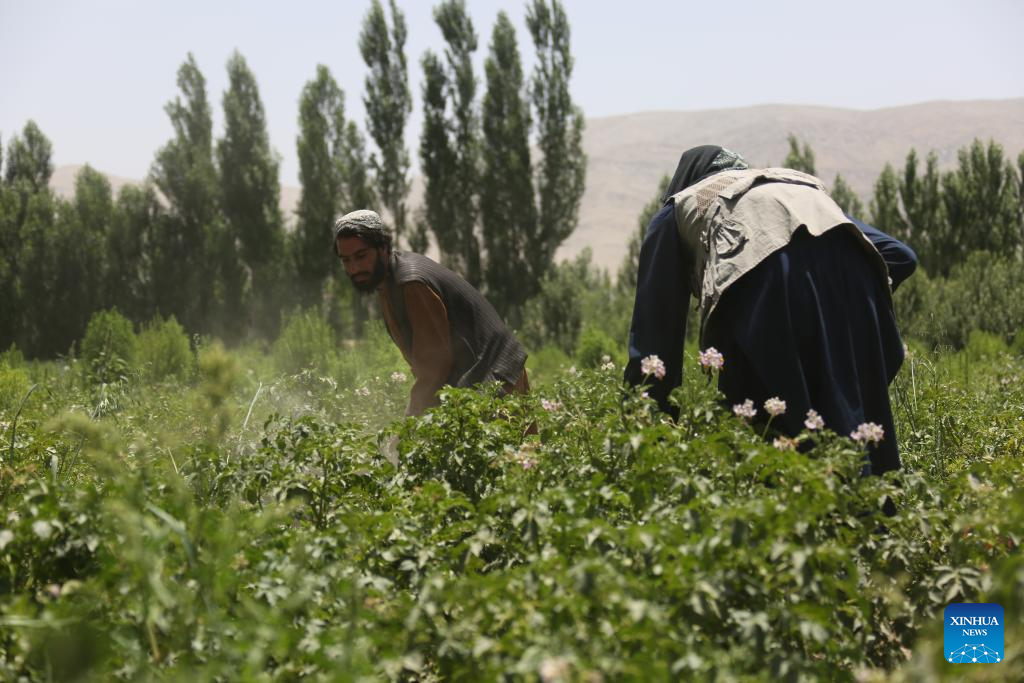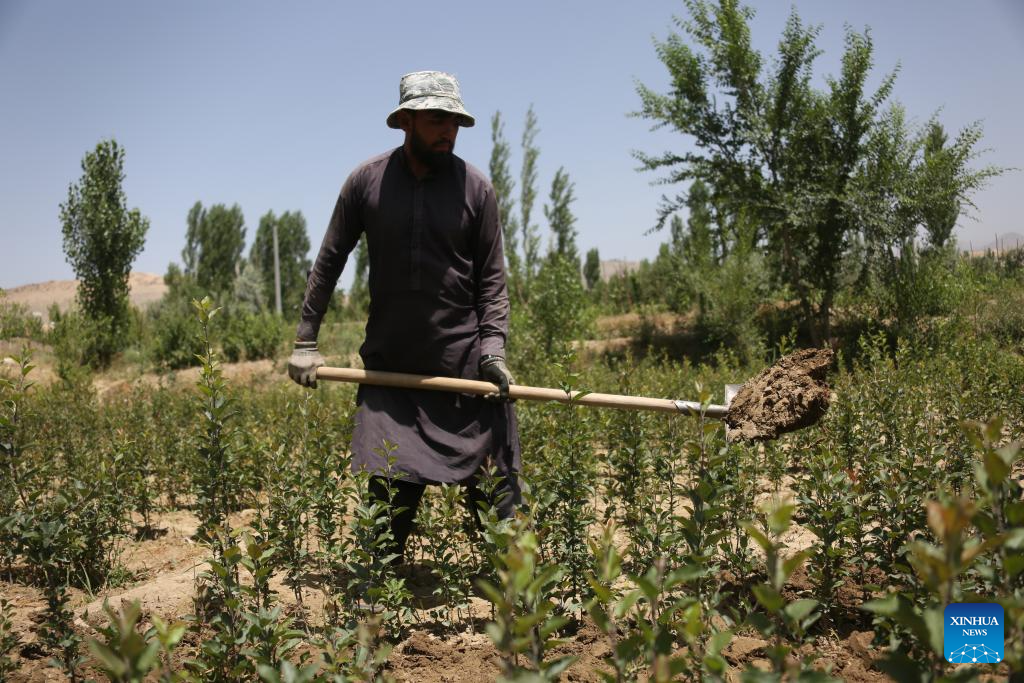Feature: Afghan farmers embrace horticulture to replace opium cultivation
Source: Xinhua
Editor: huaxia
2025-06-25 19:58:46

Afghan farmers cultivate legal crops on land that was previously used for growing opium poppies in Wardak province, Afghanistan, June 23, 2025. The Afghan interim government has worked to find alternative strategies for farmers to stop the cultivation, smuggling, and trafficking of narcotics through various methods. Local officials have launched public awareness campaigns and are offering agricultural alternatives. (Photo by Saifurahman Safi/Xinhua)
KABUL, June 25 (Xinhua) -- Noor Agha, a local farmer who has been farming for over a decade across eastern and southern Afghanistan, now works among apple and cherry trees with a shovel in hand and a smile on his face.
"In the past, people grew opium, which was a disaster and didn't benefit anyone," Agha told Xinhua. "We now cultivate seedlings, wheat, and potatoes."
"When apple trees bear fruit, the income is ideal," he said.
His sentiments reflect a broader shift across the country, where the Afghan interim government has intensified its campaign against drug cultivation.
"When we cultivated opium, it harmed everyone -- our families, relatives, and the country. People became addicted, and the recovery process was difficult," Agha said.
Despite Afghanistan's legacy as one of the world's leading producers of illicit opium, the current administration has launched efforts to eliminate the crop, providing alternative seeds and resources to farmers.
Zargo Stanikzai, a 44-year-old farmer from Nirkh district of Wardak province, is among those who have embraced the change. On his 10-acre plot, he now grows almonds, peaches, apples, and cherries -- crops that he believes hold long-term promise.
"Our life is going well. Five people work here with me, and we're happy. Gardening is better than other crops," Stanikzai told Xinhua.
Stanikzai now earns up to 1 million Afghanis (approximately 14,224 U.S. dollars) annually from his orchards, and hopes more Afghans will transition to horticulture.
"It would be great if people focused on agriculture and gardening. Gardening is more profitable than opium, and the work is clean and problem-free," he said. "The future of our youth is being ruined by opium. I'll be truly happy when no one grows it anymore."
Still, Stanikzai voiced concern over persistent droughts and urged the international community not to leave Afghan farmers alone in the fight against climate change.
The Afghan interim government has worked to find alternative strategies for farmers to stop the cultivation, smuggling, and trafficking of narcotics through various methods. Local officials have launched public awareness campaigns and are offering agricultural alternatives.
"It is our duty to educate others," said Mawlawi Habibullah Mujahid, director of information and culture in Wardak province. "We need to convince people that planting opium is wrong."
Mujahid also criticized the legacy of the U.S. military presence, blaming it for a surge in drug addiction and drug production. Now, he said, anti-narcotics commissions are active at the provincial level. "If someone plants opium, the commission inspects the field and destroys the crop."
Despite local efforts, Mujahid noted that no international organization has yet offered direct support in combating drug cultivation in Wardak.
In September 2024, the Afghan interim government established a 27-member High Commission to combat drugs, treat addicts, and prevent trafficking and cultivation, urging stronger international support for its anti-narcotics efforts. ■

An Afghan farmer cultivates legal crops on land that was previously used for growing opium poppies in Wardak province, Afghanistan, June 23, 2025. The Afghan interim government has worked to find alternative strategies for farmers to stop the cultivation, smuggling, and trafficking of narcotics through various methods. Local officials have launched public awareness campaigns and are offering agricultural alternatives. (Photo by Saifurahman Safi/Xinhua)



